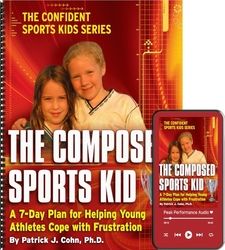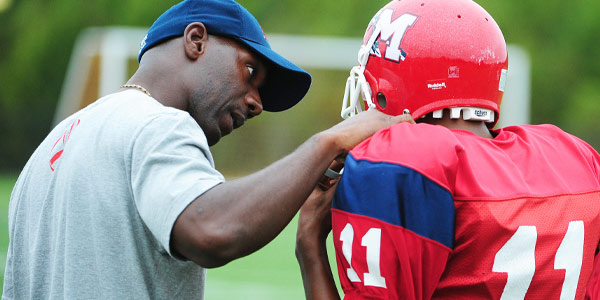Turning Feeling into Goals
When Breanne Smedley was a college volleyball player, her roommate earned the role of starter in Smedley’s position. Smedley, who is now a certified female athlete Confidence Coach, at first felt as if her friend shouldn’t have gotten the position.
“I started going down these holes of why I should get the position and she shouldn’t,” says Smedley.
But instead of following up on those feelings, she decided to handle the situation in a positive way. She let herself feel hurt and told herself she could either be a victim or do what she could to help herself and her team.
She decided to push herself, and along the way, push her friend, too.
“The culture of the team was great. We pushed and pulled each other. We had this great dynamic,” Smedley says. “It started with me making that choice. I was going to celebrate her success. When she was on the court, I wasn’t going to hope she messed up. I gave her feedback, I pushed and challenged her in practice.”
Ultimately, the two created a “beautiful relationship.” Smedley had a few opportunities to be the starter, and her friend was happy for her.
Too often in sports–especially girls’ sports–this is not how the story unfolds. Comparisons are common, and they can hurt kids’ confidence.
“When females start to compare themselves to others, we get into our heads that there’s a scarcity of success. If she has success, then there’s less for me,” she told us during an interview with the Ultimate Sports Parent podcast.
It’s human nature for girls–and boys–to make comparisons. It’s important to acknowledge this. “I have athletes tell themselves, ‘If she can do it, it doesn’t prove that I can’t. It’s proof that it’s possible. The other person can be an inspiration,” she says.
Smedley helps girls ride the wave of their feelings–whether they’re jealousy or disappointment–and suggests that they be curious about their feelings.
“That can uncover things like ‘I really worked hard for that. And I wanted that,’” she says. When kids come to these kinds of realizations, they’re better able to set goals for themselves.
Parents should validate kids’ feelings when they’re making comparisons.
“If your daughter comes to you and says, ‘Someone else got the position instead of me,’ reiterate what she’s trying to tell you, hold some space for her to feel it,” she advises.
Parents should help kids think about why the issue matters, and help them turn those feelings into goals.
“Don’t say anything negative about the other person. Keep it productive, focus on your daughter and what she can be doing that’s in her control, Help her understand she’s great the way she is, and help her come up with an actionable way to work through this,” says Smedley.
Listen to the Full Podcast:
Related Articles on Youth Sports:
- Athletes Who Make Comparisons And How Parents Contribute
- Why Kids’ Self-Confidence Suffers When Sports Parents Make Comparisons
- How Young Athletes Lose Confidence with Comparisons
*Subscribe to The Sports Psychology Podcast on iTunes
*Subscribe to The Sports Psychology Podcast on Spotify
The Composed Sports Kid

“The Composed Sports Kid” audio and workbook digital download program for young athletes and their parents or coach helps kids cope with frustration and anger in sports. Help your sports kids learn how to manage expectations and let go of mistakes so they can keep their head in the game.
The Composed Sports Kid system is really two programs in one–one program to train parents and coaches how to help their kids practice composure, and one program that teaches young athletes–ages 6 to 13–how to improve composure, let go of mistakes quickly, have more self-acceptance, and thus enjoy sports more!

